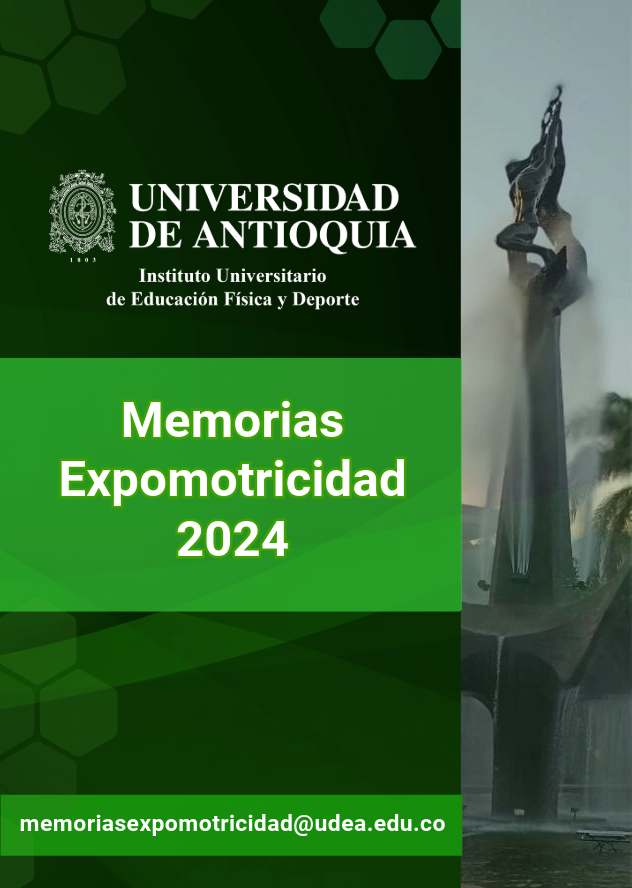Efeitos da recreação para a educação territorial: treinamento de promotores e gerentes no Pacífico colombiano
Palavras-chave:
barreiras, educação, promotores, recreação, territóriosResumo
A recreação, como campo fundamental no desenvolvimento integral do indivíduo, catalisador muito poderoso na construção de processos educativos em diversos contextos. Este artigo analisa o impacto da recreação para a educação no Pacífico colombiano, por meio da formação de promotores e gerentes, para identificar estratégias eficazes que promovam o desenvolvimento comunitário e a inclusão social. A pesquisa aborda a necessidade de compreender e valorizar o papel da recreação na educação das comunidades do Pacífico colombiano, que enfrentam desafios como falta de recursos, a desigualdade no acesso às oportunidades educativas e a marginalização de certos grupos étnicos e culturais. Este estudo misto incluiu entrevistas semiestruturadas com 33 promotores e gerentes de recreação e educação no Pacífico colombiano. Essas entrevistas permitiram aprofundar as percepções, experiências e práticas dos participantes com relação ao impacto da recreação na educação e identificar barreiras e facilitadores para a sua implementação efetiva. Os resultados mostram um impacto significativo da recreação na educação nos territórios do Pacífico da Colômbia com um aumento na participação comunitária, o fortalecimento das competências sociais e a promoção de valores como a cooperação e o respeito. Além disso, há uma melhoria na qualidade de vida dos habitantes locais, com uma diminuição da violência e um maior senso de pertença. Essas descobertas destacam a importância de investir em programas de formação recreativa para promover o desenvolvimento integral em comunidades marginalizadas.
Downloads
Referências
1. Coalter, F. (2007). A Wider Social Role for Sport Who's Keeping the Score? Routledge. https://doi.org/10.4324/9780203014615
2. Coalter, F. (2015). The Politics of Sport-for-Development: Limited Focus Programmes and Broad-Gauge Problems? International Review for the Sociology of Sport, 45(3), 295-314. https://doi.org/10.1177/1012690210366791
3. Chinchilla, V. (1999). Historiografía De La Educación Física en Colombia. Revista Lúdica Pedagógica (1), 47 - 51. https://doi.org/10.17227/01203916.5434
4. González-Hernández, E., Isaza-Gómez, G. D., Miranda-Calderón, K., y Mosquera-Vente, A. M. (2022). Panorama de la formación de posgrado para el área educación física, deporte, actividad física, recreación y afines en Colombia. Revista Digital: Actividad Física Y Deporte, 8(2). https://doi.org/10.31910/rdafd.v8.n2.2022.2207
5. Isaza Gómez , G. D., González Hernández, E., Rengifo Cruz, . R., y González Arango, L. F. (2018). Programas de formación superior en el campo de la educación física, el deporte y áreas afines en cuatro países de América Latina. perfiles profesionales y desafíos. Latinoamericana de Estudios Educativos, 15(1), 111–129. https://doi.org/10.17151/rlee.2019.15.1.7
6. Ley 181 de 1995. [Congreso de Colombia]. Por la cual se dictan disposiciones para el fomento del deporte, la recreación, el aprovechamiento del tiempo libre y la Educación Física y se crea el Sistema Nacional del Deporte. 18 de enero de 1995. D. O. 41.679.
7. Peña Fernández, J. M., García Camejo, G., Angulo Poroso, H., y Briñones Fernández, A. (2022). Modelo didáctico de la clase a distancia para la formación del profesional de la actividad física, deporte y recreación. GADE: Revista Científica, 2(3), 254-270.
8. Reyes Rodríguez, A. D. (2023). La recreación en Babel: entre la constitución del campo y la encrucijada epistémica. Retos: Nuevas Perspectivas de Educación Física, Deporte y Recreación, 49, 279-291.
Downloads
Publicado
Como Citar
Edição
Seção
Licença
Copyright (c) 2024 Fabian Marín, Ricardo Rengifo Cruz, Diego Orejuela Aristizábal, Natali Arenales

Este trabalho está licenciado sob uma licença Creative Commons Attribution-NonCommercial-ShareAlike 4.0 International License.




